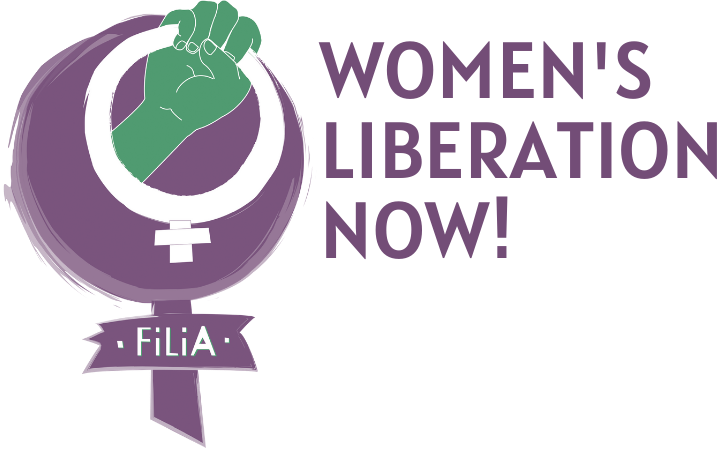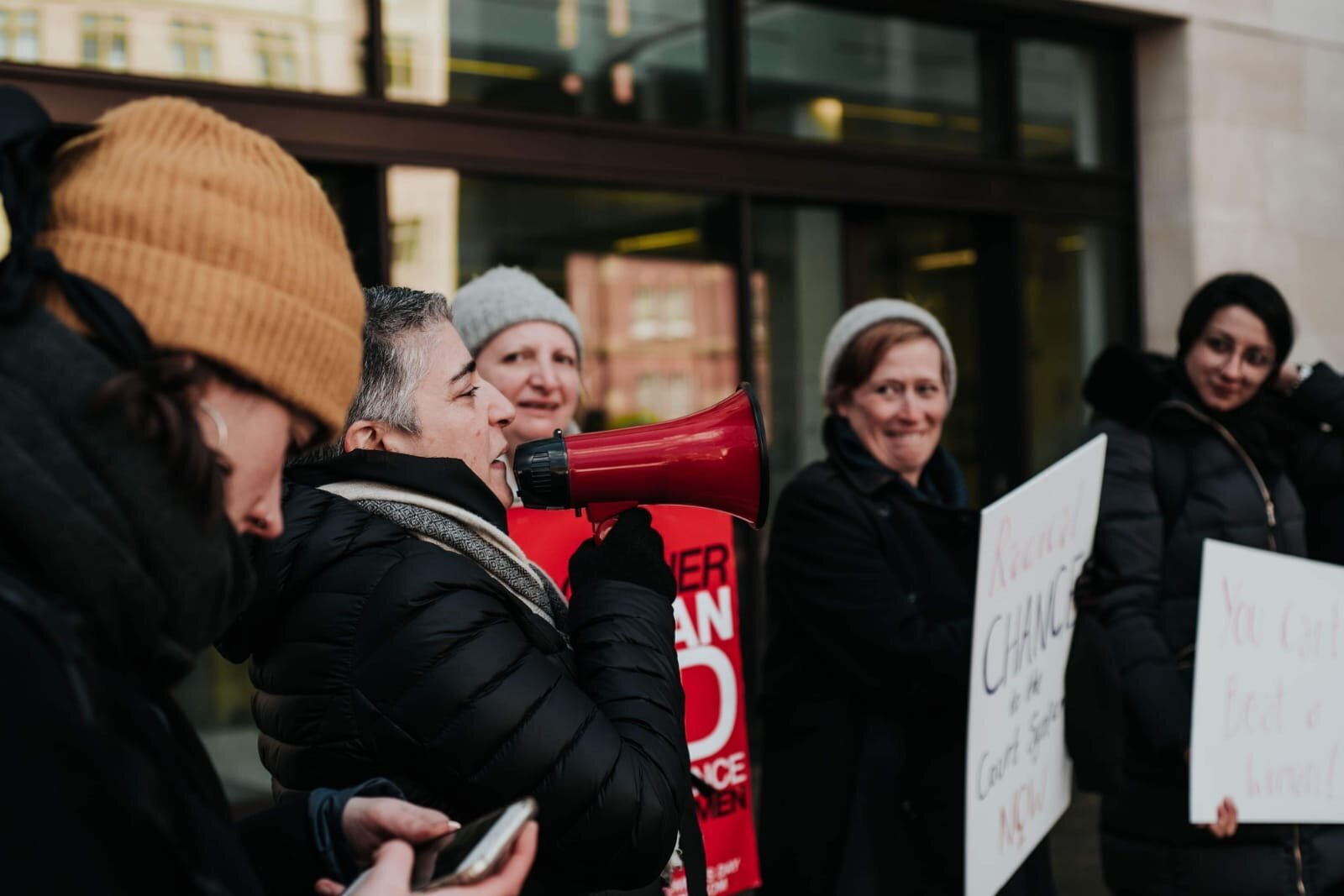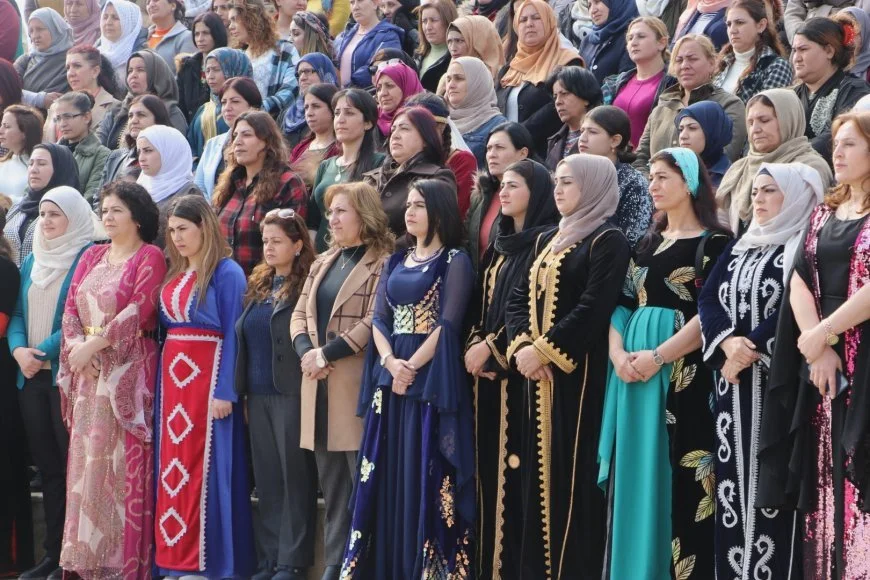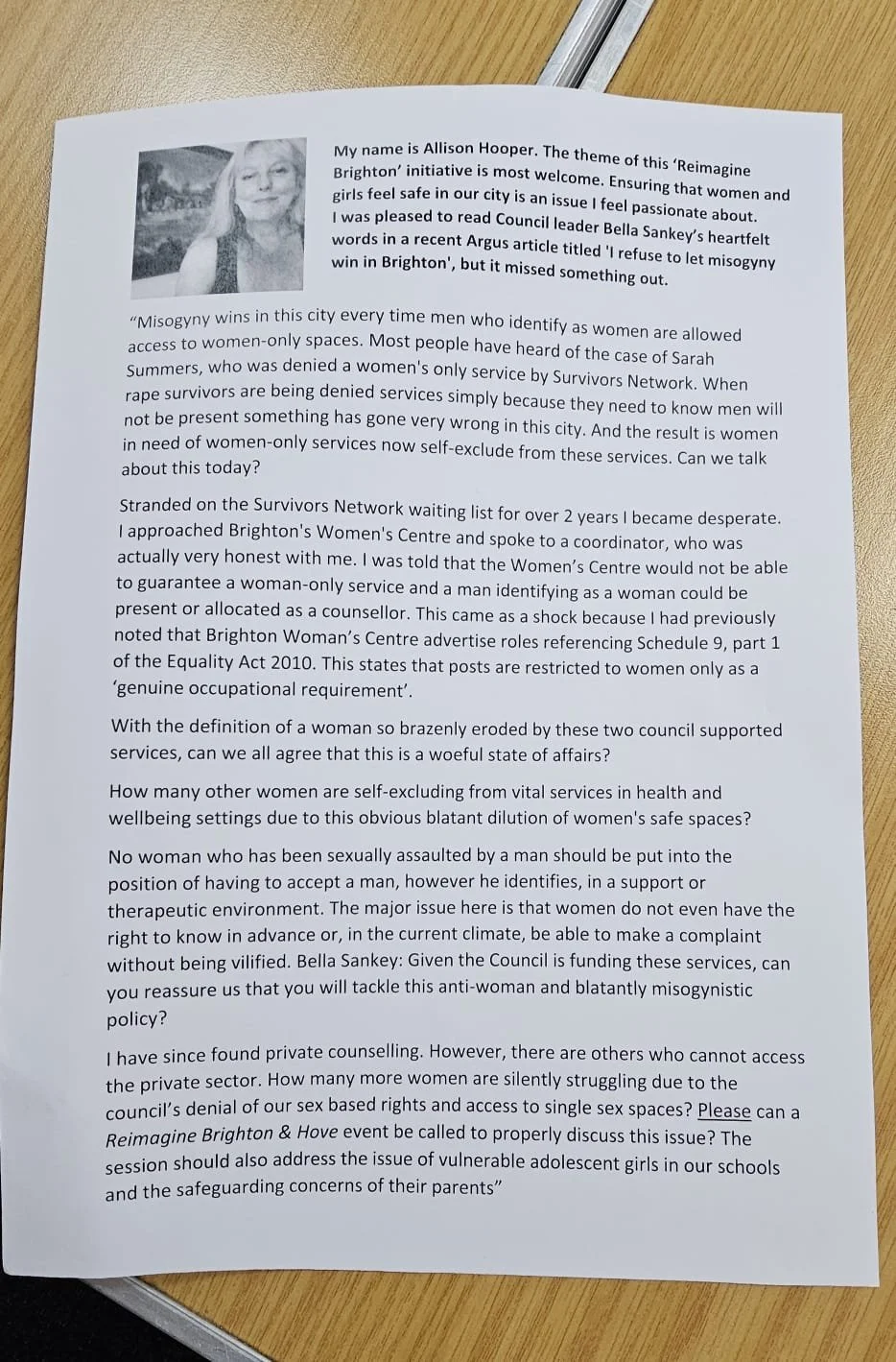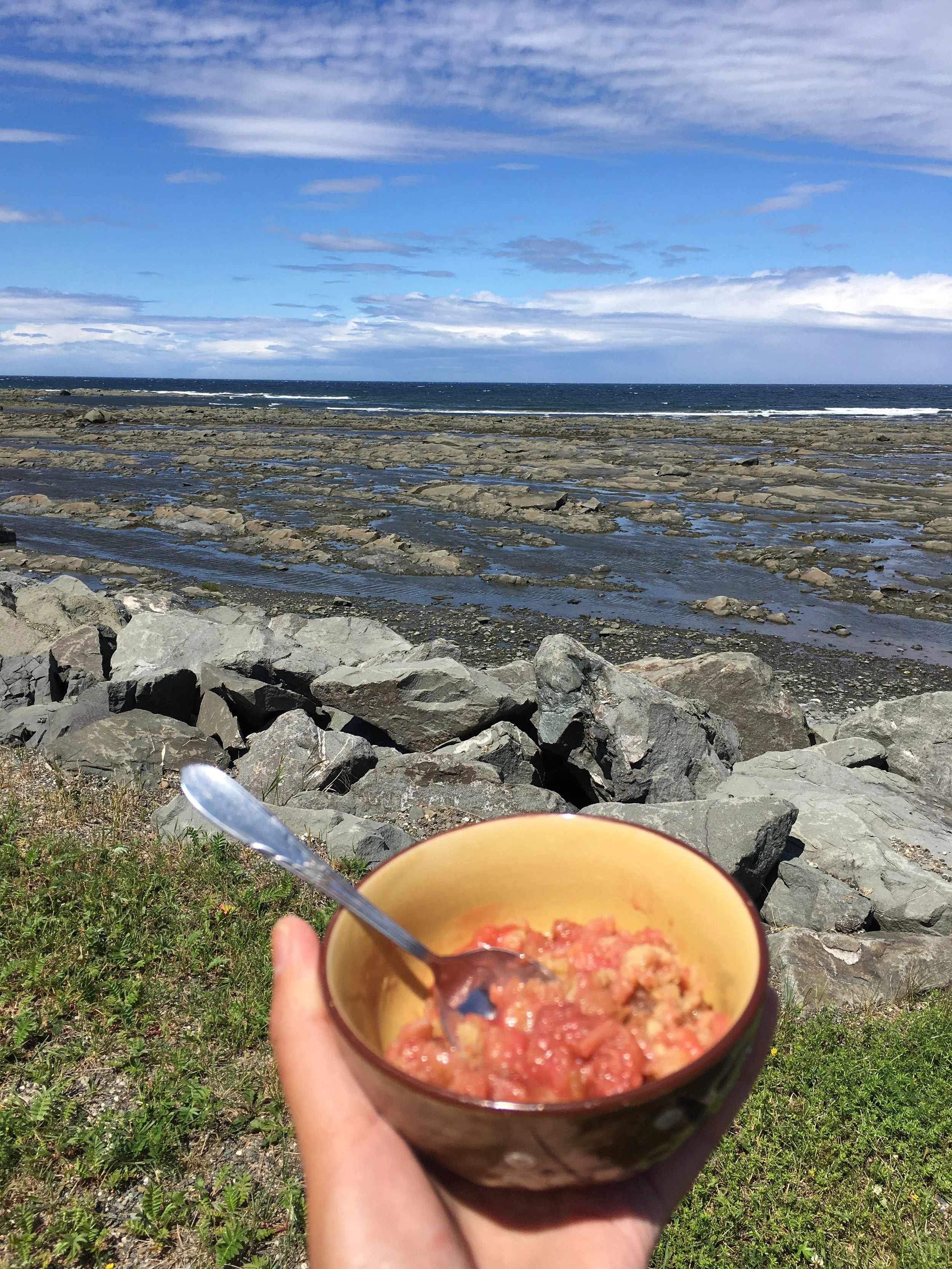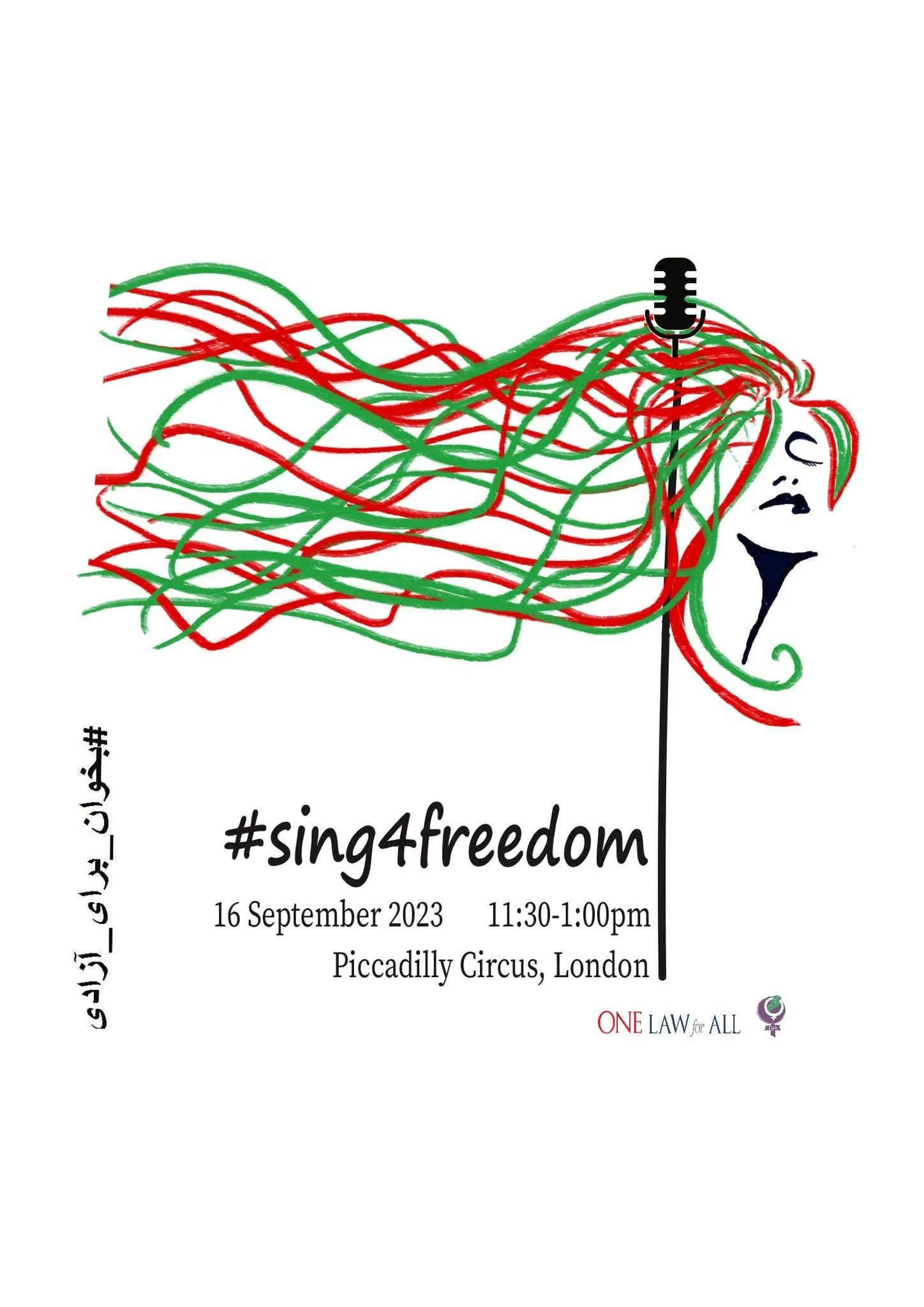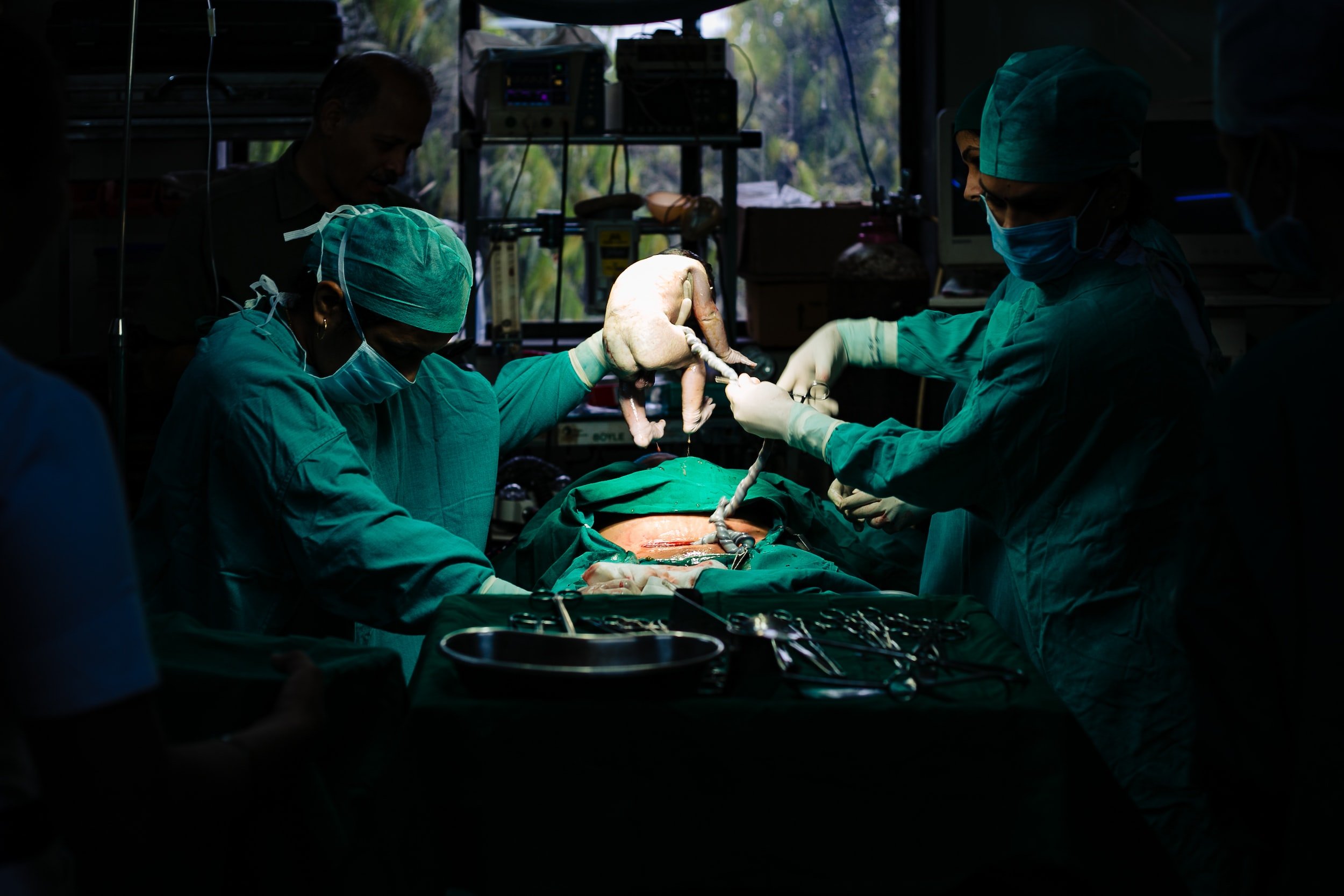Learn about the causes we are fighting for and how you can get involved.
Narrow your search or read everything.
Gemma Aitchison is founder of YES Matters UK that supports children and young people who have suffered sexual abuse and exploitation. She also campaigns and works to prevent VAWG and improve victim rehabilitation including the compulsory PSHE curriculum and CSE Prevention Policy. She says ‘My mother died on Wednesday. As a survivor of CSEA and given that over 80% of perpetrators of CSEA are family members and family friends I figured my complex struggles around this are not unique. One that women who are survivors will relate to. It's a poem about that.’
Yasmin Morais is the founder of Vulva Negra, the first materialist feminist project ‘born from the desire to unite the materialist perspective of radical feminism with the narratives of black theorists and the lived experience of black Brazilian and Afro-Latin women.’ Yasmin travels around Brazil and the world with her itinerant lectures at the ‘Encontro Feminista Vulva Negra’ (Vulva Negra Feminist Meeting).
In this interview, Andreia Nobre talks to Yasmin Morais about the many pressing issues currently affecting Brazilian women, including femicide, domestic violence and the plight of black and brown women in a Latin American country, despite the country having been under a leftist government since Luiz Inácio Lula da Silva was elected for office in 2022 for the third time.
Lisa-Marie (FiLiA CEO) was introduced to the issue of the Kurdish struggle by Rahila Gupta. FiLiA recognised the potential of the Kurdish women's struggle to inform our understanding of the potential for liberation and has platformed Kurdish women's voices at conference, and in our blogs and podcasts, as well as attending in-person solidarity meetings. For this contribution, Rahila Gupta, author and activist, was invited to shape an interview with Kongra Star, the women's umbrella group leading the women's revolution in Rojava, North and East Syria. Kongra Star did what they do so well ‒ they used a collaborative approach and invited contributions from many women's groups in the region. The result is an extraordinary piece and one that we are very pleased to share with you on International Women's Day.
On 29th January 2024 Lisa-Marie Taylor, CEO of FiLiA, attended an event organised by the local council and billed as one of a series, with the aim of ‘hearing your ideas’ to ‘create the positive change you would like to see’ in Brighton & Hove. What she witnessed during the course of the two-hour workshop left her shocked; silencing, intimidation and a lack of willingness to engage on what is one of the key topics within the VAWG sector currently.
On UN International Day of Education, Rose Rickford shares what she has learnt from researching women's skills sharing projects of 1970s-90s Britain. Across the world, women are still systematically excluded from learning and using a whole range of manual skills. Even in countries with relatively high levels of educational equity, vocational training is still almost entirely sex-segregated. While young women learn care and beauty skills, young men learn construction and manufacturing skills. When it comes to getting work, jobs in skills that men learn are much better paid, so this is an important issue for women's equality. Part of the solution is of course to pay higher wages for the skills that women train in. But another part is to increase women’s participation in skills they are currently excluded from. In the 1970s-90s, women set up their own courses and projects to teach one another these skills. For those who took part, it was a doorway to a world they were previously locked out from.
This article by Hannana Siddiqui and Selma Taha, members of Southall Black Sisters, brings into focus the stark reality of the plight of migrant and asylum seeking women escaping gender-based violence; and how the state traps them in abusive relationships or gender related persecution. It also highlights and celebrates the fight back by black feminists to these sexist and racist immigration laws and the wider hostile environment.
How does one start with women in motion and end up with a women's movement? I want to share one of my last bike trips with the audience. I'm a woman on the go, meeting women along the way. I want to share how biking helps me on a daily basis. For me, biking is not only a means of transport, but a way of liberation, giving me a sense of freedom. It is also about women taking up public space and connecting together. I've noticed that the women I meet on the road are often isolated, with a need and a desire to connect with other women. I'd like us to be able to meet up on the same road, women on bikes, and share a stretch of the road together, an episode in our lives. A women's cycling movement! I want women who read my piece to find inspiration, if not join the movement to help them break any of the patriarchal chains that oppress us.
We're delighted to publish our new FiLiA Activity Booklet filled with news about our work throughout the year and how this develops out of ideas that emerge through our conferences and our discussions with local Women – with thanks to all of them for working with us, and thanks to Sisters Trust for enabling the FiLiA Legacy Project to continue.
Our ISS striking women are showing every worker how real trade unionism is done. Their inspiring struggle has set an example for the entire labour and trade union movement to follow. It’s working-class women like this who have the most to lose from the attacks on pay, conditions and public services and who have the most to gain from getting organized in the unions and fighting back. Women who are prepared to to get properly organized in their workplaces are the ones who will genuinely shape working conditions for future generations and stop society from slipping into barbarism.
It is often said that women are the ‘shock absorbers’ of poverty. More likely to live in poverty, managing tight budgets and going without to protect others from hardship. New research from the Trussell Trust has laid bare the scale of hunger across the country, the disproportionate impact it has on women and how we can change it.
Claire Heuchan announces the Labrys Lit reading list for 2024. Here’s what our international lesbian book group will be reading next year.
This is a followup piece about a story that we published on June 2022. Women had walked for 20 days to reach the capital of Nepal seeking justice for two women who had died due to violence. One of the women have not yet found justice. This is a reflective and informative piece on their journey for seeking justice.
Discussion on the harms of surrogacy in relation to the Global South and the developing world. The piece covers countries like India, Nepal, China and Ukraine and argues that the exploitation of women in surrogacy in this part of the world testifies to the inherently exploitative nature of surrogacy as an industry. Understanding what is happening in the developing world deepens feminist knowledge of the ethical problems with surrogacy.
